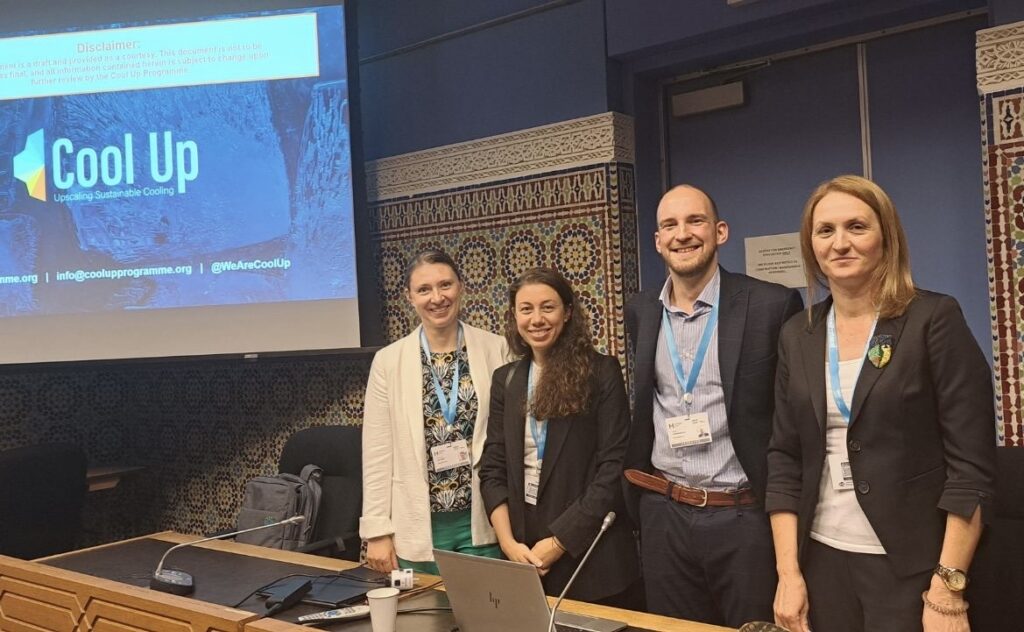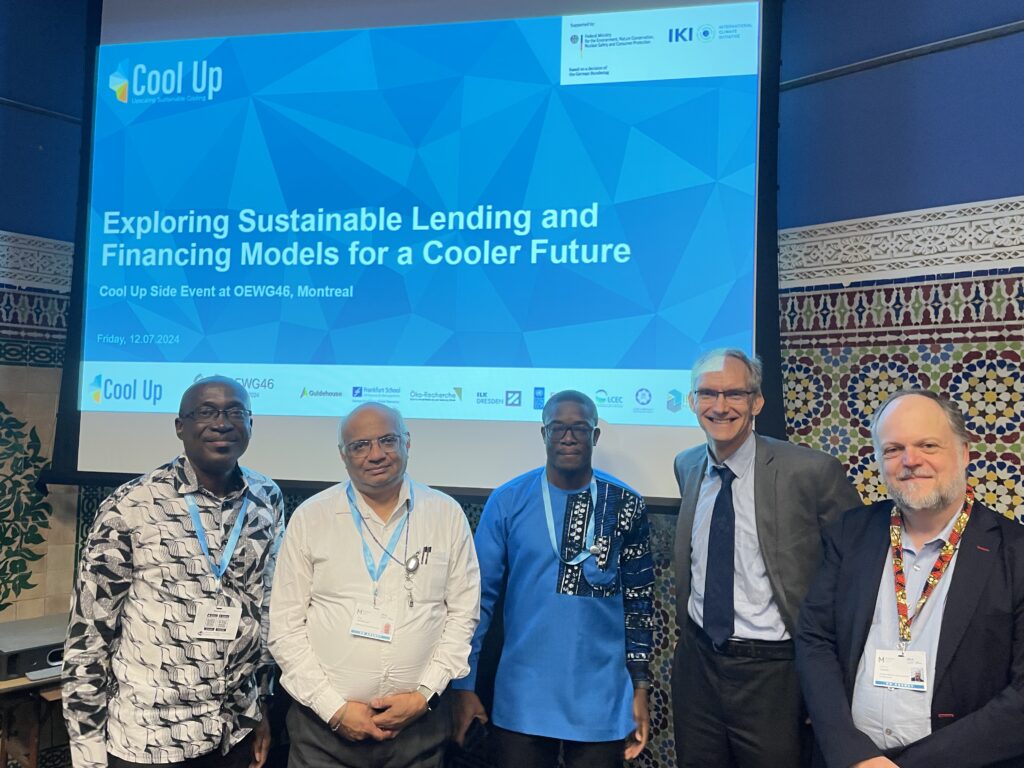08.07.2024, Montreal, Canada
OEWG46 & Workshop on Strengthening MP implentation
Cool Up participated in two side events of the 46th meeting of the Open-ended Working Group of the Parties to the Montreal Protocol on Substances that Deplete the Ozone Layer in Montreal, Canada.
The 46th Open-ended Working Group (OEWG) conference focused on discussions and evaluations related to the implementation and effectiveness of the Montreal Protocol, which aims to protect the ozone layer by phasing out the production and consumption of ozone-depleting substances (ODS). Key agenda items included reviewing progress, addressing emerging challenges, and considering proposals to enhance compliance and enforcement measures.
The workshop on strengthening the implementation of the Montreal Protocol, held in conjunction with the OEWG conference, brought together experts, policymakers, and stakeholders to explore strategies for improving the enforcement of existing regulations, increasing technical and financial support for developing countries, and addressing new scientific findings related to ozone depletion. The workshop emphasized collaboration, capacity-building, and innovative approaches to ensure the continued success of the Protocol in protecting the global environment.
The first side event on “Substantiating Policy Making Through National Equipment Registers” was moderated by Cool Up’s Barbara Gschrey (Öko-Recherche), Gokcen Asan (UNDP Türkiye) and Sinisa Prodanovic (Öko-Recherche). The event provided insights and benefits of implementing national equipment registers covering equipment related data as well as activities such as servicing, and leak checking performed on RACHP equipment. National equipment databases contain valuable information including general aspects about common servicing practices in refrigeration and air conditioning as well as measurement-based leakage rates. Application of this collected data enables better informed assessment work in the national context, particularly by establishing fine calibrated emissions models, which serve as a path for tailoring and prioritizing of further policy measures as part of National Cooling Action Plans (NCAPs), national GHG inventories under UNFCCC and Kigali Implementation Plans (KIPs). Participants will receive an overview of the best practices of national databases implementation in several countries to learn about ways for data-driven policy making.

The second side event on “Exploring Sustainable Lending and Financing Models for a Cooler Future” was hosted by Cool Up’s Dr. Andreas Hermelink (Guidehouse) and Etienne Gonin (UNDP). The event provided four key insights of lending and financing models to support commercial end-users in deploying sustainable cooling technologies looking at Cool Up’s cooling market assessments and financial feasibility studies for cooling technologies in Cool Up countries; lending models applied in developing countries and EBRDs financing facilities; key technology supplier experience with insights into examples of market penetration strategies, more specifically on natural refrigerants-based technologies; and Cool Up’s experience with training local banking sector on sustainable RACHP technologies and building exchange platforms connecting suppliers, end-users, and financial professionals at the national level.

